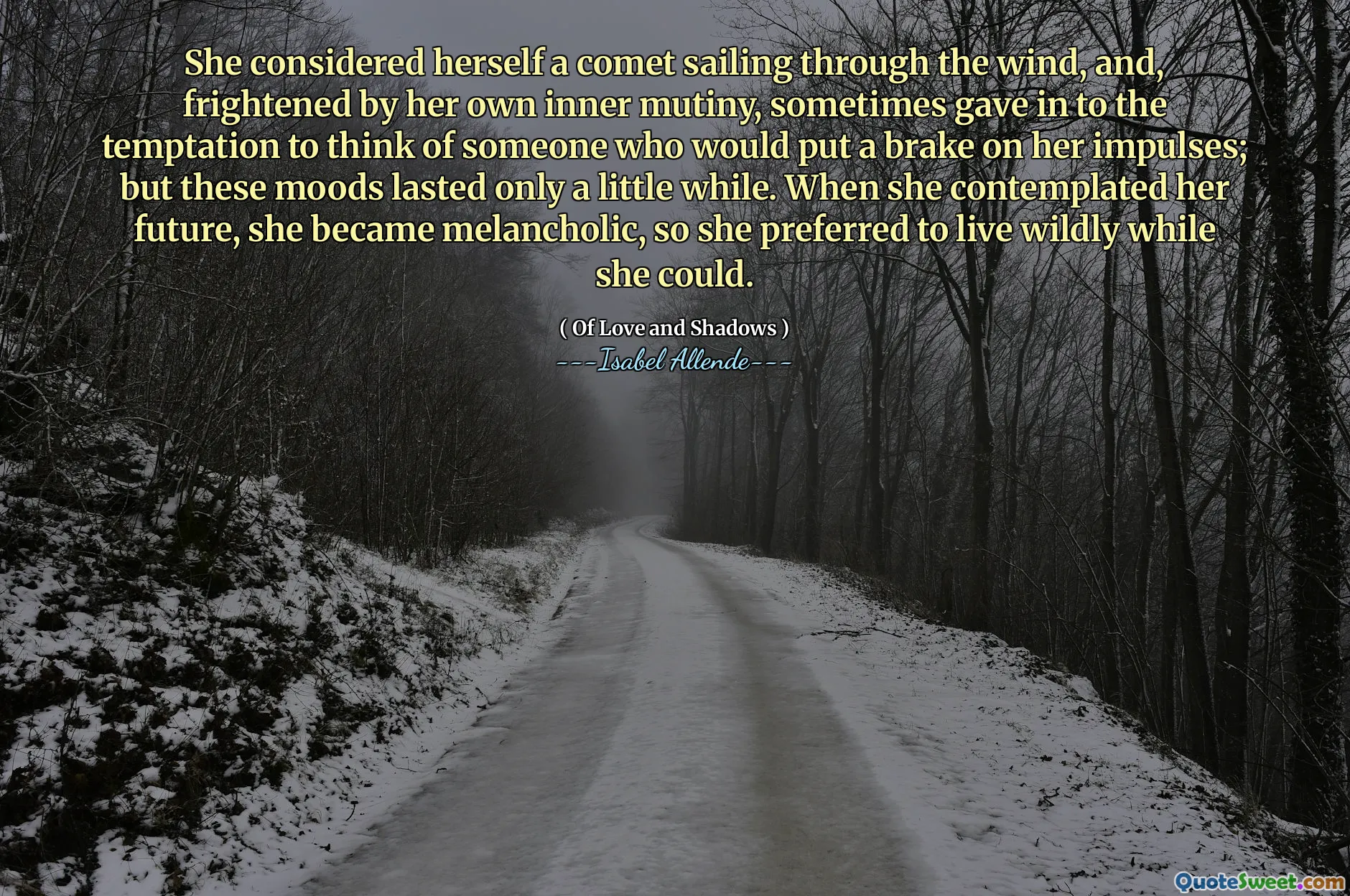
She considered herself a comet sailing through the wind, and, frightened by her own inner mutiny, sometimes gave in to the temptation to think of someone who would put a brake on her impulses; but these moods lasted only a little while. When she contemplated her future, she became melancholic, so she preferred to live wildly while she could.
[As I reflect on this quote, I see a deep exploration of individuality, the struggle for freedom, and the transient nature of self-control. The metaphor of a comet soaring through the sky captures the essence of a free spirit—fueled by instinct, driven by a desire to break free from constraints, and navigating the tumultuous currents of inner emotions. This imagery evokes a sense of awe and vulnerability: the comet's beauty is intertwined with the acknowledgment of its potential for chaos. The narrator admits to occasional temptations to seek external anchors—someone who might tame or control her impulsiveness—highlighting human tendencies toward connection or the longing for stability amidst chaos. Yet, she recognizes that these urges are fleeting, reinforcing the theme that that inner independence and spontaneity often prevail, even in the face of fear or uncertainty. When contemplating her future, her mood turns melancholic, reflecting a bittersweet awareness of mortality and the impermanence of moments of joy or rebellion. Despite this, she chooses to live fiercely and exuberantly as long as possible, embodying a philosophy of embracing life's passions and vulnerabilities without the anchor of permanence. The quote beautifully encapsulates the tension between the desire for freedom and the inevitable constraints of time and existence, reminding us to cherish our moments of rebellion and self-expression while they last.
Of Love and Shadows by Isabel Allende.






